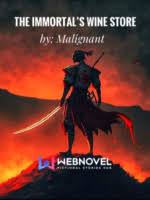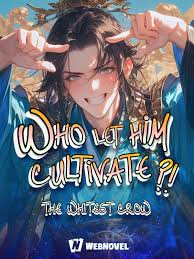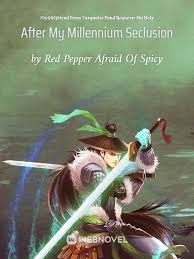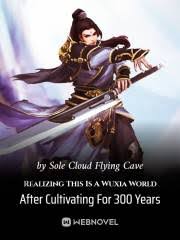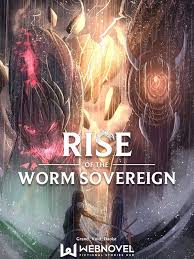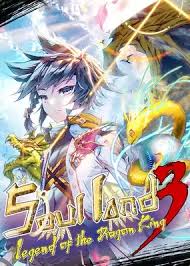The Story in 3 Sentences
A once-mighty Heavenly God named Jiu Shen is betrayed, imprisoned, and ultimately killed, only to awaken in a new world inside the body of a young man with shattered cultivation and a failing wine shop.
He discovers his past-life hobby of winemaking grants him a unique cultivation path, allowing him to brew divine wines that restore power, forge alliances, and unravel cosmic secrets hidden in fermentation and flavor.
As his humble storefront becomes a nexus for immortals, demons, and emperors alike, Jiu Shen navigates betrayal, legacy, and love while rebuilding his strength to confront the Celestial Emperor who destroyed him—and to become the universe’s first true Wine God.
Why It Stands Out
1. Divine Fermentation as Power System
Unlike typical xianxia where strength comes from pills, swords, or bloodlines, this novel builds an entire cultivation philosophy around winemaking—each vintage carries spiritual essence, emotional resonance, and realm-breaking potential, turning the act of pouring a glass into a strategic, even sacred, ritual.
2. Comedy Rooted in Cosmic Irony
The humor doesn’t rely on slapstick or overused tropes; instead, it emerges from the absurd contrast between Jiu Shen’s godlike past and his current role as a modest shopkeeper haggling with saints over a bottle of plum wine, creating a tone that’s both whimsical and wryly philosophical.
3. A Store as the Center of the Multiverse
Rather than chasing dungeons or sects, the narrative anchors itself in a single location—the wine store—which becomes a crossroads of fate, where every customer’s story weaves into the larger tapestry, making the microcosm feel grander than any battlefield.
Characters That Leave a Mark
There’s Hestia – a radiant being crafted by the system to serve Jiu Shen, whose calm demeanor hides the soul of a fallen cultivator from a forgotten era, and whose loyalty evolves from duty into quiet, unshakable devotion.
You’ll meet Theia, who carries the resurrected soul of the Celestial Emperor Lao Gou’s wife, making her both a living weapon and a tragic mirror to Jiu Shen’s past, her presence forcing him to confront forgiveness and the cyclical nature of vengeance.
And Lu Sulan? They’re the one who becomes Jiu Shen’s first disciple, a once-broken talent revived by his wine and guidance, embodying the novel’s core theme that even the most discarded souls can ferment into something extraordinary.
The Flaws Fans Debate
Some readers argue the story drifts from its unique wine-centric premise in later chapters, leaning too heavily into conventional cultivation battles and power escalation.
A recurring critique mentions uneven pacing, where slice-of-life shop interactions are abruptly interrupted by world-shaking conflicts without sufficient narrative buildup.
Others note that while the supporting cast is vivid, certain emotional arcs—especially romantic subplots—feel underdeveloped or resolved too conveniently through divine intervention rather than earned growth.
Must-Experience Arcs
Ch. 1–60: The Humble Store – Jiu Shen awakens in a ruined body, revives his wine shop with makeshift brews, and begins attracting curious cultivators with wines that heal, enlighten, or intoxicate beyond mortal limits.
Ch. 200–280: The Wine God Trials – Invited to a celestial competition, Jiu Shen faces elite alchemists and brewers, using unconventional ingredients and emotional intent to prove that true divinity lies not in power but in the soul poured into every bottle.
Ch. 520–582: Immortalized – With the Celestial Emperor’s forces closing in, Jiu Shen unleashes his ultimate vintage, a wine distilled from memories, regrets, and cosmic will, culminating in a final confrontation where flavor becomes fate and the store itself ascends as a divine realm.
Killer Quotes
“Power fades. Thrones crumble. But a well-brewed wine? That lingers in the soul long after the cup is empty.”
“Even the bitterest grape can yield sweetness—if you have the patience to wait through the fermentation of time.”
“You think gods rule the heavens? No. The heavens bow to those who understand the silence between sips.”
Cultural Impact
Fans coined the phrase “Pour one for the Dao” as a meme whenever a character achieves a breakthrough after drinking Jiu Shen’s wine.
The novel inspired real-life craft brewers to create “Immortal Wine” themed batches, with labels mimicking chapter titles like “Body-Reforging Plum” or “Saint’s Tears.”
Despite modest official ratings, it gained a cult following on forums like Reddit’s r/xianxia, where readers praised its “anti-grind” philosophy in a genre obsessed with relentless progression.
Final Verdict
Start Here If You Want:
A xianxia comedy that subverts power fantasies by making humility, craft, and hospitality the true paths to transcendence.
A protagonist who wins not by destroying enemies but by offering them a seat, a cup, and a second chance.
A world where the most epic battles are fought not with swords, but with vintages—each bottle a story, each sip a revelation.
Study If You Love:
Narratives that blend Eastern cultivation tropes with Western tavern-keeper or isekai-shopkeeper frameworks, creating a hybrid genre with fresh mechanics.
Symbolic systems where everyday acts—like brewing or serving—are elevated into metaphysical practices reflecting Daoist and Buddhist principles of transformation.
Stories that use a fixed location as a narrative engine, proving that depth can emerge from stillness rather than constant movement across maps.
Avoid If You Prefer:
Fast-paced, action-driven plots with minimal downtime; this novel luxuriates in conversation, brewing, and character moments.
Strict adherence to traditional cultivation hierarchies; here, a well-aged rice wine might humble a god.
Stories where romance or politics dominate; while present, they serve the central theme of creation over conquest.
